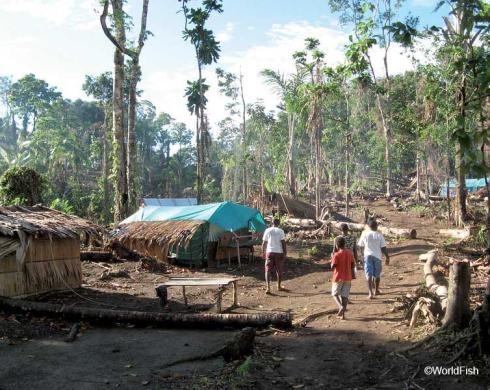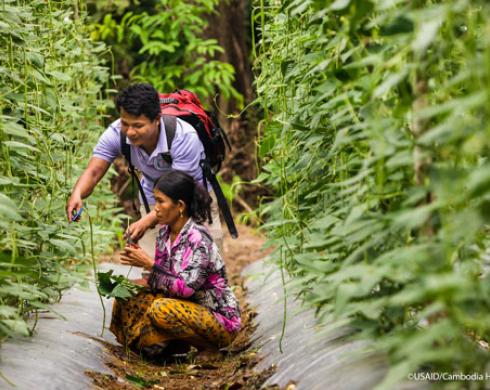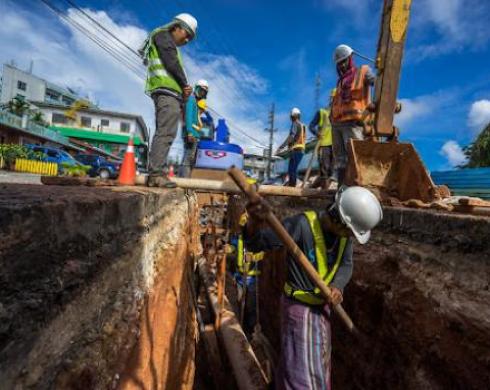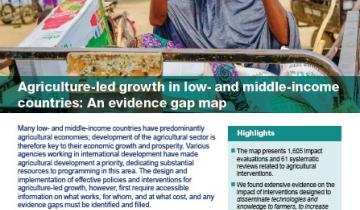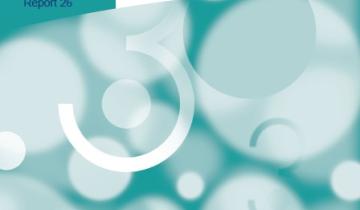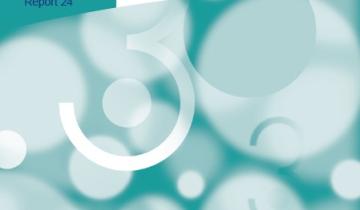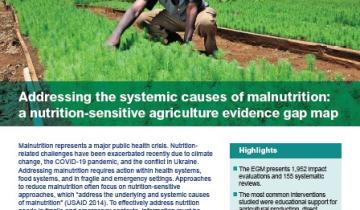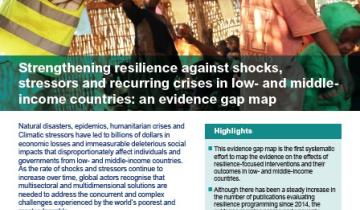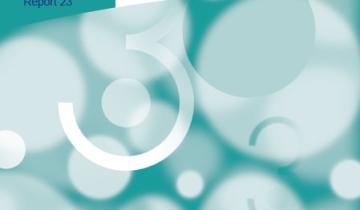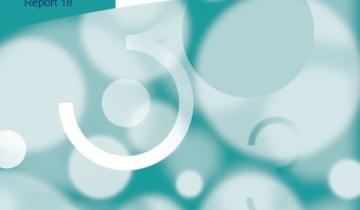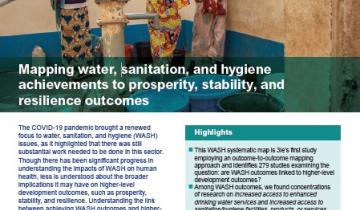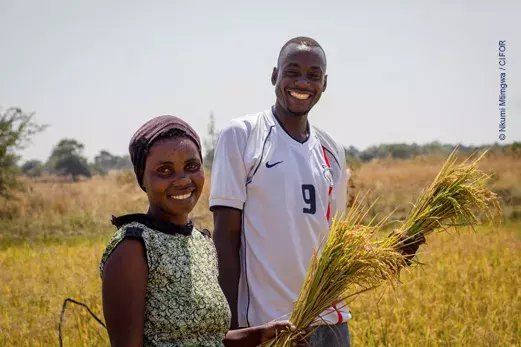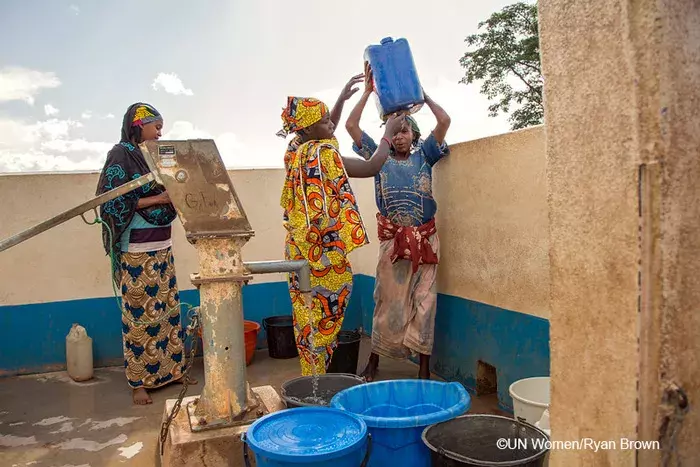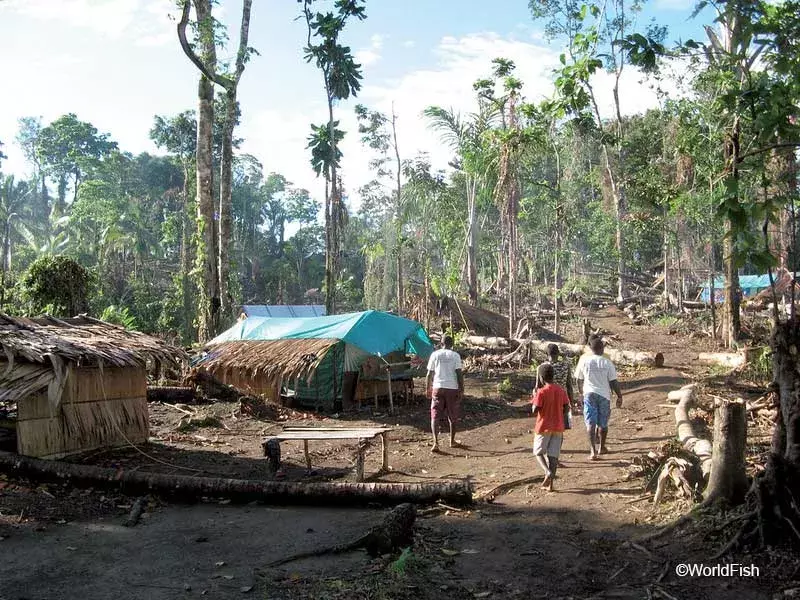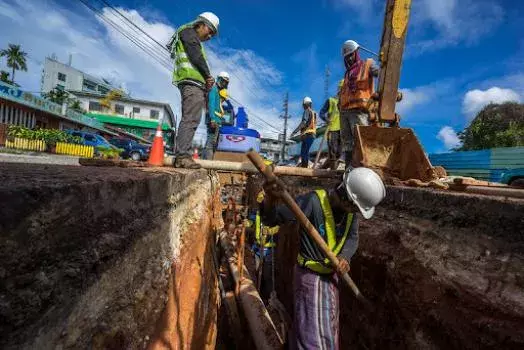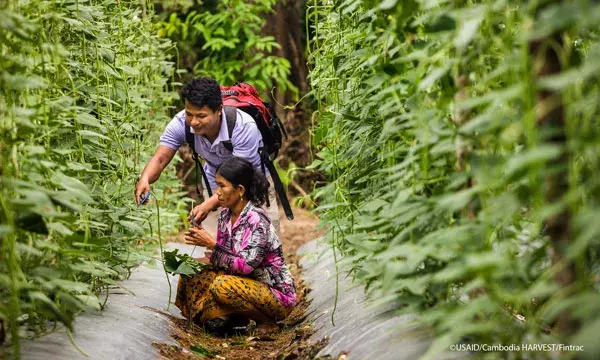Mapping the Evidence on Resilience and Food Security
Widespread hunger, malnutrition, and water insecurity have devastating impacts on the health and well-being of millions of people. Evidence on what approaches are most effective to address these challenges and increase resilience can help make better investments and decisions. To strengthen evidence-informed decision-making at USAID’s Bureau for Resilience and Food Security (RFS), 3ie has partnered with MIT and the University of Notre Dame for the RFS Evidence Aggregation for Programmatic Approaches (REAPER) project. We are developing evidence gap maps on agriculture-led growth, resilience, nutrition and water security, sanitation, and hygiene.
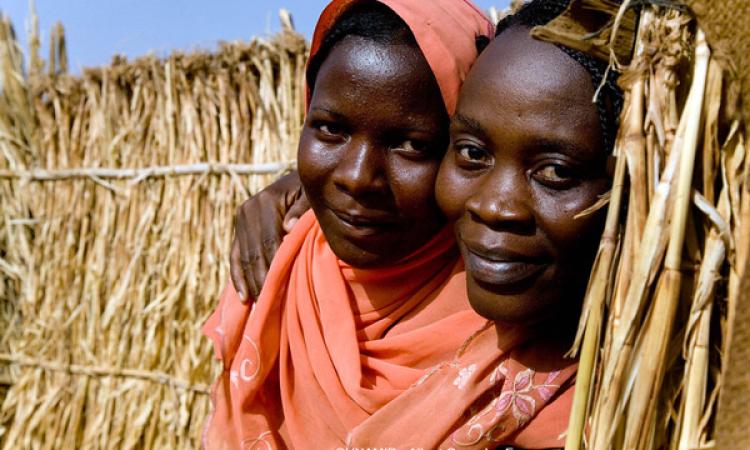
Overview
RFS offices and technical centres deliver strategic, programmatic, and analytical assistance to inclusively address and build resilience capacity in low- and middle-income countries. 3ie is working in collaboration with key technical partners to improve the quality of evidence underpinning RFS’s technical approaches and its work in four areas that include agriculture-led growth, resilience, nutrition and water security, sanitation, and hygiene.
Mapping the evidence
We are systematically identifying, analyzing and mapping the existing evidence base for potential gaps, and highlighting existing evidence to determine the effectiveness of interventions in each of these areas, and incorporate new evidence. The EGMs will help understand where rigorous research exists, the underlying studies, and where more research is needed. We are also exploring and leveraging advances in machine learning methods to synthesize evidence.
To date, billions of dollars in funding have been committed to global resilience-strengthening and risk management and mitigation strategies. Alongside this increase in global attention and resources dedicated to improving resilience, is a need to understand the breadth of evidence on the effectiveness of these efforts to identify evidence gaps, and to facilitate access to existing research. To fill this gap, 3ie’s Resilience EGM presents the existing effectiveness evidence on resilience programming – such as disaster risk financing, early warning systems, social protection, environmental and natural resource management, financial inclusion and livelihoods, social cohesion and conflict resolution, and inclusive and accountable institutions – and its outcomes related to adaptive, absorptive, and transformative capabilities. We focus on the extent to which studies examine the multidimensional nature of resilience in its absorptive, adaptive, and transformative capacities. We found 362 quantitative impact evaluations and 19 systematic reviews of impact evaluations on resilience programming.
View interactive map | Read report | Read policy brief | Read blog | View launch event
For the ag-led growth and nutrition EGMs, the technical approaches have been translated into a matrix of interventions and outcomes. Studies are mapped onto the matrix framework to provide an overview of the evidence base and underscore the major primary and synthesis evidence gaps in the literature.
Agriculture-led growth: View the interactive map | Read report | Read brief
Nutrition-sensitive agriculture: View the interactive map | Read report | Read brief
The importance of WASH as a development goal has been widely acknowledged, yet its broader implications on other development objectives are not fully understood. To address this knowledge gap, our innovative WASH EGM examines the relationship between achieving WASH outcomes and higher-level development outcomes such as prosperity, stability, and resilience in low- and middle-income countries. The WASH systematic map is 3ie's first study employing an outcome-to-outcome mapping approach and identifies 279 studies.
View systematic map | Read report | Read policy brief | Read blog
The RFS Evidence Aggregation for Programmatic Approaches (REAPER) Project was funded by USAID through the Comprehensive Initiative on Technology Evaluation (CITE) managed by the Massachusetts Institute of Technology (MIT) with additional support from Feed the Future Knowledge, Data, Learning and Training (KDLT) activity managed by Bixal Solutions Incorporated.
Disclaimer: This project is made possible by the generous support of the American people through the United States Agency for International Development (USAID). The contents are the responsibility of 3ie and do not necessarily reflect the views of USAID or the United States Government.


